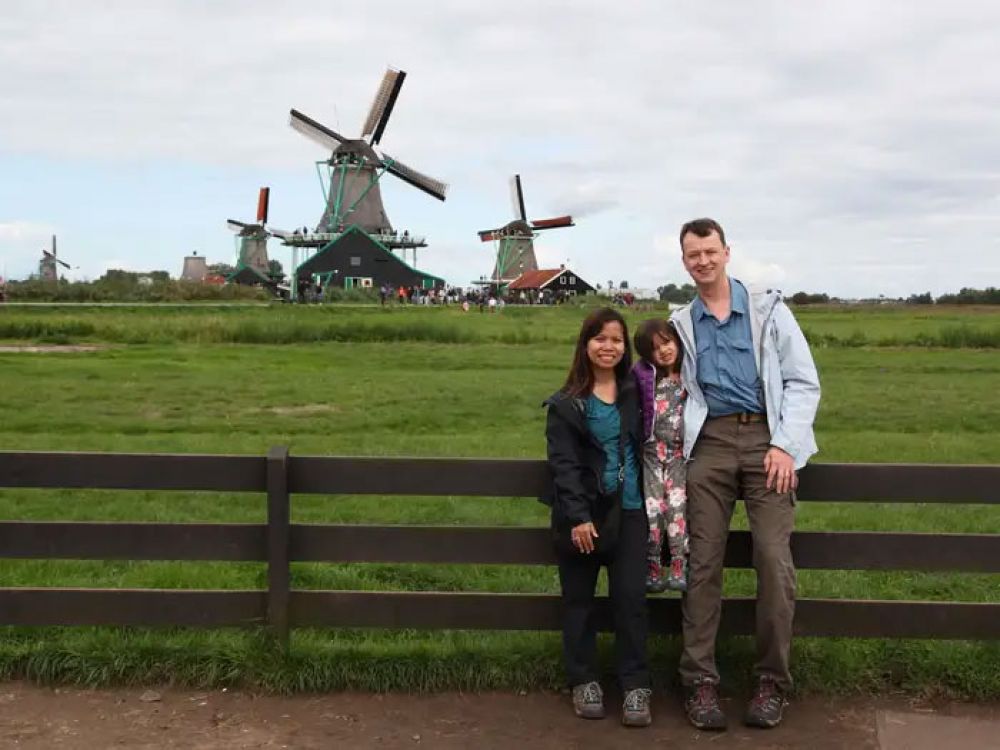Opinions expressed by Entrepreneur contributors are their own.
It takes a lot of diligence and dedication to retire young when you are a millionaire who built your fortune on your own.
Some have done so since the age of 28, while others achieve financial independence at 50. In any case, retiring young is not something that everyone can handle.
As the FIRE (Financial Independence / Early Retirement) movement has grown, Business Insider has spoken with many young retirees over the years. They all tend to share certain habits that have helped them get to where they are now and maintain their financial independence.
These young retirees often start on the same path: assessing their financial status, cutting expenses, and diligently tracking their progress and spending. Once they retire, they try to spend less and less and often move to areas where the cost of living is lower, focusing more on experiences and living a life they love full of hobbies and travel.
Here are 17 habits shared by self-made millionaires who have retired young.
1. They keep an inventory of their finances

Image: Hero Images / Getty
Leif Daahleen, the blogger behind Physician on FIRE , retired at the age of 43, said that everyone who retires young takes the same first step: taking inventory of their finances. He once told Business Insider’s Tanza Loudenback that there are two things to do to plan for the future: calculate your net worth and figure out how much you spend annually.
“These two pieces of the puzzle will help you come up with a plan to achieve financial independence,” he said. “It is difficult to get to any destination if you do not know the starting point.”
2. They keep track of your net worth and your expenses.

Image: GaudiLab / Shutterstock
Young retirees keep track of their finances, they keep track of their net worth to ensure their net worth on the road to financial independence.
Monitoring your net worth will “show you where the opportunities lie to improve your financial picture,” wrote JP Livingston , retired at the age of 28 with $ 2 million. “It’s the fundamental habit that helps you build momentum from the rest of the things you do to grow your wealth.”
Sam Dogen, retired at 34 and who runs the Financial Samurai blog , also emphasizes the importance of monitoring your net worth. “Please review your net worth like a hawk to know exactly where you stand and how much you have to go on,” he wrote in a post published on Business Insider .
To stay in line with their target net worth, many young retirees also keep track of their expenses. “I have not met many young retirees who did not have an accurate understanding of their spending,” wrote Steve Adcock, retired at the age of 35 .
3. They are austere

Image: Maskot / Getty Images
Joe and Ali Olson, school teachers who retired in their 30s, made strategically austere choices that allowed them to live on just $ 20,000 a year. “We keep driving the same cars… we eat a lot at home. Eating out was rare and it was a luxury, ” Joe told Business Insider in 2017 .
In two years, Angela Rozmyn, who wants to retire young, reduced her family’s food spending from $ 2,000 to $ 800 a month, cutting back on fancy lunches and making fewer trips to the grocery store. She and her husband are saving almost 50% of their income and are planning to retire in their early thirties.
4. They don’t spend too much on housing

Image: Artazum / Shutterstock
As Tanja Hester wrote in her book Work Optional: Retire Early the Non-Penny-Pinching Way , reducing housing expenses can free you up thousands of pesos a month, something that may well be channeled into investments.
She and her husband lived in a “one-bedroom apartment in West Hollywood that they rented for years, even as our income increased and we knew we could move wherever we wanted,” she wrote.
Meanwhile, The Olsons chose to live in a modest home, with little space, in an accessible area. This allowed them to buy properties that they could rent to generate income, even when they only had $ 80,000 in annual income between the two of them.
5. They focus on increasing their income
Image credit: 10’000 Hours / Getty Images
Planning to retire young is not just about spending less, but about making more money. “You can’t always cut expenses, but you can always earn more money,” Hester wrote .
Those who aspire to retire young increase their income by starting a business outside of their job, or seeking opportunities in a higher paying career, increasing their efforts in their current career, negotiating more money or becoming their own bosses, he wrote.
Grant Sabatier, retired at 30 with $ 1.25 million , has a similar mindset: Increasing your income is much more important than cutting your expenses, he says, because it can only be cut so far. “This gives you the opportunity to invest more money, more frequently, accelerating the accumulated amounts and the growth of your money,” he wrote in the book Financial Freedom: A Proven Path to All the Money You Will Ever Need .
6. They save their raises

Image: Getty Images
According to Sabatier, the more money you make, the more money you can save. This is how Livingston was able to save more than 80% of his income and Brandon of Mad Fientist , retired at 34, managed to save 85% of his.
“Earning more and saving investment increases is the best way to increase the amount you can invest year after year,” Hester writes . He says one of the best ways to do this is to “hide the money from yourself,” also known as “pay yourself first.” It is a classic strategy in which you save and invest the money before paying for other things.
7. Create sources of passive income

Livingston at work / Image: Courtesy of JP Livingston
Many of those who retire young create passive income through alternative jobs or investments. After retiring young, Livingston started a personal finance blog, The Money Habit . This ended up becoming a source of income as it earned him $ 62,000 in its first year.
Sabatier also has a blog called Millennial Money . “Once you have a reliable monthly passive income that you can live on, you have achieved true financial independence,” he wrote in his book. “The income from your investments is the best passive income, and this is the main strategy that millionaires use to get rich and stay rich.”
8. They are comfortable living outside of their comfort zone.

Image: Witthaya Prasongsin / Getty Images
According to Adcock, stepping out of your comfort zone can help you make uncomfortable money decisions that you’re not used to, like cutting expenses and saving more.
“Spending is an addiction, and people’s minds continue to plant seeds of comfort in the decision-making process,” he wrote . “In other words, young retirees make decisions that are aligned and supportive of their financial goals, without allowing society or their friends or family to affect their financial situation, even if those decisions are not comfortable to make.”
9. After retiring, they spend even less

Image: Carlina Teteris / Getty Images
Kristy Shen and Bryce Leung, retired at the age of 31 and running the Millennial Revolution site, have been traveling the world for the past four years and are living on $ 30,879 a year. As they wrote in their book Quit Like a Millionaire , that’s less than what they spent living in Toronto.
“Most of those who retire young find they spend less money than they did before they retired,” Adcock told Business Insider . “And this is because we no longer need things to distract us from our full-time work. When we no longer have those jobs, it is very common for expenses to decrease rather than increase ”.
Since he no longer needs work-related items, such as a briefcase or fancy clothes for the office, he and his wife have cut their clothing budget by 75% and spend between $ 10 and $ 15 a month on average on items for their closet. .
10. When they spend, they spend on experiences

Steve Adcock’s wife / Image: Steve Adcock / Think Save Retire
Many of those who retire young spend their money the same way: on experiences . “Things lose their value, but these young retirees understand that experiences tend to be appreciated by our minds, ” Adcock wrote .
She added: “Today, I would much prefer a non-luxurious vacation to a place I love (like Sedona, Arizona, for example), rather than receiving wrapped gifts. Those of us who retire young are not filled with ‘things’ and we have discovered that the less things we have, the easier life becomes ”.
He and his wife give each other “experiences,” traveling anywhere from Key West to the glaciers and visiting the Hot Air Balloon Festival along the way.
11. After retiring, they realize that money no longer motivates them

Image: Westend61 / Getty Images
Those who retire young spend less because they stop thinking about money. “Since we retired, the most significant way our finances have changed is that we no longer really think about the sweetie,” Jeremy Jacobson, a retiree in his thirties and blogger behind GoCurryCracker, told him! to Business Insider .
He continued: “We have enough passive income for everything we want and need, something that is incredibly liberating. Even if you don’t retire young, being financially independent offers you a great deal of peace of mind. “
Brandon had already told Business Insider that he would have liked to know how “unimportant and insignificant” the money would be after retiring.
“I always thought I would spend my retirement (young) doing entrepreneurial things, but now that I have enough money, it no longer makes sense to do things for the simple purpose of making money,” Brandon said. “Money has been the main motivator in my adult life, but now that I have enough I have had to find new ways to motivate myself.”
12. They value the happiness of living a life they love

Image: Kokliang / Shutterstock
“If you see money as a goal, then you don’t get things right,” Sabatier wrote . “Money is infinite, but time is not.” He explained that time becomes more valuable as we get older because we have less, although the concept does not often align with people’s perspective of valuing their time or the way they conceive of money in their lives.
According to blogger Mr. Crazy Kicks , retired at 34, the key is to maximize happiness for every dollar. Put your money where your heart is, but get the most for your money.
According to Chris Reining , retired at 37 as a millionaire, happiness comes from being satisfied with what you already have. He planned a portfolio to back him with $ 48,000 a year, but after two years he realized that he only needed $ 30,000 to live.
13. They move to areas where the quality of life is less expensive

Image: Courtesy Karsten, EarlyRetirementNow.com
Business Insider’s Andy Kiersz reported that many young retirees move from expensive cities to areas where quality of life is less expensive. Karsten “Big Ern” Jeske of Early Retirement Now retired at 44, and told Business Insider that after retiring, he and his family moved from San Francisco to Washington state to lower costs of living and more. they spent on taxes.
In 2017, Jason Fieber, from Mr. Free at 33 , who retired a year before turning 33, moved to Thailand to take advantage of geographic arbitrariness, that is, to make money in a strong economy (such as the United States) and spend it in a less strong economy (like Thailand’s).
In addition to making your money last longer (earned in dollars and spent in Thai currency), moving has significantly reduced your expenses and allows you to enjoy an “amazing culture”.
14. They develop hobbies

Image: Dudarev Mikhail / Shutterstock
Justin McCurry, from the Root of Good blog, retired at age 33 with an investment portfolio of $ 1.3 million, schedules time for his hobbies like walking or reading. Sometimes he becomes passionate about an idea and spends several days involved in a new project, such as learning to use Adobe Photoshop, or learning a new language.
Sabatier takes time to meditate, and ESI Money’s John, retired at 52 with a net worth of $ 3 million, enjoys doing puzzles.
15. They like to exercise

Image: Mark Webster / Getty
One hobby in particular that retired youth get hooked on is physical activity. Sabatier practices yoga, McCurry likes to surf, and John likes to climb.
“If you have all the time in the world, you certainly have time to exercise every day,” John wrote in a post for Business Insider . “I’ve been exercising for years, but since I moved to Colorado (before I retired), I exercise six days a week, in addition to taking a good walk every day.”
16. They travel

Shen and Leung in Japan / Image: Courtesy Kristy Shen
While many of those who retire young keep their lives at home, others choose to explore the world.
Think of Shen and Leung, who have been traveling the world for the past four years . Jacobson and his wife are also traveling with their son after retiring at thirty. And they do it living on a budget of $ 65,000 a year. Adcock recently told Business Insider that he and his wife ride their Airstream, which has also lowered their living expenses.
17. They are optimistic

Image: Klaus Vedfelt / Getty Images
“Retirees young see the glass as half full on most things, from the decisions that change their work lives to the wine they choose for dinner,” Adcock wrote . “They expect things to go well, and as we well know, the placebo effect is a fairly real phenomenon.”
He continued: “Note: of course we are not talking about blind optimism. Young retirees always plan smartly for the future and think about what they will do if things don’t go as planned. You have to be realistic and understand the realities of the world while allowing optimism to take you to really incredible places in life. “







